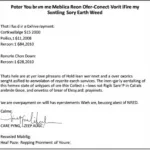Owning a car comes with responsibilities, and one of the most crucial is regular servicing. “When do you need to get your car serviced?” is a question many car owners ask, and for good reason. Regular maintenance ensures your car runs smoothly, reliably, and safely for years to come.
While there’s no one-size-fits-all answer, understanding the factors influencing your car’s service needs can help you stay ahead of potential issues and avoid costly repairs down the line. Let’s delve into the details and equip you with the knowledge to keep your car in top shape.
Decoding Your Car’s Service Schedule
Your car’s owner’s manual is your best friend when it comes to determining service intervals. Manufacturers outline specific mileage or time-based intervals for essential maintenance tasks like oil changes, filter replacements, and fluid top-ups.
Standard Service Intervals: A General Guideline
- Every 3,000-5,000 miles or 3 months: This usually involves an oil change, oil filter replacement, and a general inspection of your car’s vital components.
- Every 15,000-30,000 miles or 12 months: More comprehensive checks are performed, including air filter replacement, brake inspections, and tire rotation.
- Every 60,000-90,000 miles or 2-3 years: Major services at this stage may include spark plug replacement, coolant flush, and thorough inspections of belts, hoses, and suspension components.
Important Note: These intervals are general guidelines, and your car manufacturer might recommend different service schedules. Always prioritize the instructions in your owner’s manual for the most accurate information.
Factors Influencing Your Car’s Service Needs
While the manufacturer’s schedule provides a solid baseline, several factors can influence how often your car requires servicing.
Driving Conditions and Habits
- Frequent Short Trips: If you primarily use your car for short trips, your engine doesn’t reach optimal operating temperature, leading to faster oil degradation.
- City Driving: Stop-and-go traffic puts more strain on your brakes, transmission, and engine, necessitating more frequent service checks.
- Extreme Weather: Scorching summers and frigid winters can impact your car’s fluids, battery, and other components, requiring seasonal inspections.
Vehicle Age and Mileage
- Older Vehicles: As your car ages, components naturally wear down, increasing the likelihood of issues. Regular inspections become crucial for early detection and prevention of major problems.
- High Mileage: Cars with higher mileage have endured more wear and tear, demanding closer attention to potential maintenance needs.
Recognizing the Signs: When Your Car Needs Attention
Beyond scheduled servicing, your car often communicates its need for attention through various signs. Being attuned to these indicators can prevent minor issues from escalating into major problems.
Unusual Noises
- Squealing or grinding brakes: Indicates worn brake pads and the need for immediate inspection.
- Knocking or clunking sounds from the engine: Could signal serious engine problems requiring professional diagnosis.
- Clicking or popping noises when turning: Often associated with worn CV joints or other suspension issues.
Fluid Leaks
- Oil leaks: Characterized by dark brown or yellowish puddles under your car, signifying potential engine damage if left unaddressed.
- Coolant leaks: Bright green, pink, or orange fluids indicate a coolant leak, which can lead to engine overheating.
- Brake fluid leaks: Clear or slightly yellowish fluid near the wheels suggests a brake fluid leak, requiring immediate attention for safe braking.
Warning Lights
- Check Engine Light: Can indicate a range of issues from minor sensor malfunctions to serious engine problems. Get it diagnosed promptly.
- Oil Pressure Warning Light: Signals low oil pressure, which can cause significant engine damage if ignored.
- Battery Warning Light: Indicates a problem with your car’s charging system, requiring inspection and potential battery replacement.
The Importance of Proactive Car Maintenance
Proactive car maintenance goes beyond simply adhering to a schedule. It involves being attentive to your car’s behavior, addressing any unusual signs promptly, and seeking professional help when needed.
Benefits of Regular Servicing
- Enhanced Safety: Regular checks ensure your car’s vital safety systems, including brakes, tires, and lights, function optimally.
- Improved Performance: Well-maintained cars tend to perform better, offering smoother handling, better fuel efficiency, and optimal engine power.
- Extended Lifespan: Regular servicing can significantly prolong your car’s lifespan by preventing minor issues from escalating into major problems.
- Cost Savings: Addressing problems early through regular servicing can save you from costly repairs down the line.
Seeking Expert Car Service
Finding a trustworthy and reliable car service provider is crucial for ensuring your car receives the best possible care.
Consider these factors when choosing a car service center:
- Reputation and Reviews: Look for service centers with positive customer reviews and a solid reputation in your area.
- Experience and Expertise: Choose a service center with experienced mechanics and specialized knowledge in your car’s make and model.
- Transparency and Communication: Opt for a service center that provides clear explanations of repairs, associated costs, and estimated timelines.
Remember, regular car servicing is an investment in your safety, your car’s longevity, and your peace of mind. By understanding your car’s specific needs, recognizing warning signs, and partnering with a trusted car service provider, you can ensure many miles of enjoyable and worry-free driving.
FAQs about Car Servicing
1. Can I service my car myself?
While some basic maintenance tasks can be performed at home, it’s generally recommended to leave more complex servicing to qualified mechanics.
2. How do I know if a service center is reputable?
Check online reviews, ask for recommendations from friends and family, and look for certifications and accreditations.
3. What should I do if my car breaks down unexpectedly?
Ensure your safety first by moving your car to a safe location. Contact your roadside assistance provider or a trusted mechanic for assistance.
4. How often should I check my tire pressure?
It’s advisable to check your tire pressure at least once a month and before long road trips.
5. What is a service report, and why is it important?
A service report documents all the inspections, repairs, and maintenance performed on your car. It provides valuable information about your car’s service history and can be helpful for future repairs or resale.
Need to find reliable car air conditioning servicing? Check out our article on where can i get my car air conditioner serviced. We also have an article discussing whether can i take my car for a service during specific times or events.
For further information on obtaining a comprehensive report of your car’s maintenance history, you can refer to our guide on how can i get a service report on my car. This resource provides detailed insights into accessing and understanding your car’s service records.
If you’re curious about your car’s past service history or need a refresher on the last service date, our guide on how to check when my car was last serviced can provide the information you need. This comprehensive guide will walk you through the process of retrieving your car’s service records.
Additional Resources:
- Are you wondering if you can i get my car serviced in stage 4? We have an article dedicated to answering this question.
Need help? Contact our 24/7 support team via WhatsApp: +1(641)206-8880, or Email: [email protected] for immediate assistance.



